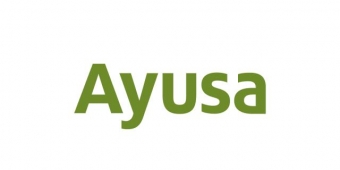- Education Topics
- Achievement Gap
- Alternative Education
- American Education Awards
- Assessment & Evaluation
- Education during COVID-19
- Education Economics
- Education Environment
- Education in the United States during COVID-19
- Education Issues
- Education Policy
- Education Psychology
- Education Scandals and Controversies
- Education Reform
- Education Theory
- Education Worldwide
- Educational Leadership
- Educational Philosophy
- Educational Research
- Educational Technology
- Federal Education Legislation
- Higher Education Worldwide
- Homeless Education
- Homeschooling in the United States
- Migrant Education
- Neglected/Deliquent Students
- Pedagogy
- Sociology of Education
- Special Needs
- National Directories
- After School Programs
- Alternative Schools
- The Arts
- At-Risk Students
- Camps
- Camp Services
- Colleges & Universities
- Counties
- Driving Schools
- Educational Businesses
- Financial Aid
- Higher Education
- International Programs
- Jewish Community Centers
- K-12 Schools
- Language Studies
- Libraries
- Organizations
- Preschools
- Professional Development
- Prom Services
- School Assemblies
- School Districts
- School Field Trips
- School Health
- School Supplies
- School Travel
- School Vendors
- Schools Worldwide
- Special Education
- Special Needs
- Study Abroad
- Teaching Abroad
- Volunteer Programs
- Youth Sports
- For Schools
- Academic Standards
- Assembly Programs
- Blue Ribbon Schools Program
- Educational Accreditation
- Educational Television Channels
- Education in the United States
- History of Education in the United States
- Reading Education in the U.S.
- School Grades
- School Meal Programs
- School Types
- School Uniforms
- Special Education in the United States
- Systems of Formal Education
- U.S. Education Legislation
- For Teachers
- Academic Dishonesty
- Childcare State Licensing Requirements
- Classroom Management
- Education Subjects
- Educational Practices
- Interdisciplinary Teaching
- Job and Interview Tips
- Lesson Plans | Grades
- Professional Development
- State Curriculum Standards
- Substitute Teaching
- Teacher Salary
- Teacher Training Programs
- Teaching Methods
- Training and Certification
- For Students
- Academic Competitions
- Admissions Testing
- At-Risk Students
- Career Planning
- College Admissions
- Drivers License
- Educational Programs
- Educational Television
- High School Dropouts
- Higher Education
- School Health
- Senior Proms
- Sex Education
- Standardized Testing
- Student Financial Aid
- Student Television Stations
- Summer Learning Loss
Ayusa

Basic Information
Address: 600 California, Floor 10
San Francisco, Ca 94108
Phone Number: 888-552-9872
Email: rwalker@ayusa.org
Director: Sherry Carpenter
Additional Information
Causes Served: High school student exchange organizaiton
Background Check: Yes
Population Served: Children, teens, adults, and families
Mission Statement:
Ayusa promotes international understanding and leadership through youth exchange programs. We offer a unique, richly personal experience for students, volunteer families, host high schools and local communities. Ayusa reaches across interpersonal and international borders, celebrating worldwide community through the spirit, character and promise of our youth.
Program History:
Ayusa International was founded in 1980 under the name Pacific American International Student Services as a not-for-profit, tax exempt student exchange organization. The name was officially changed to Ayusa International in 1984.
In 1982, Ayusa received USIA (now U.S. Department of State) designation as an official Teenage Exchange Visitor Program. This designation authorizes AYUSA to issue Form DS 2019 to its international students applying for a J-1 exchange visitor visa to the U.S.
Since our beginning in 1980 with the placement of thirty Japanese students, Ayusa has grown to become one of the premier student exchange organizations in the United States, and is widely recognized around the world. More than 50,000 international and American students have participated on AYUSA programs since 1980. Ayusa has also received numerous U.S. Department of State grants to fund scholarship programs throughout the Middle East, Eastern Europe and the former Soviet Union. Today, AYUSA places an average of 1,500 inbound students from over 75 countries worldwide, and operates outbound programs in 20 countries each year.
The organizational structure of Ayusa International includes overseas offices (Chile, France, Germany, Japan, Korea and Peru) and U.S. regional offices. Ayusa world headquarters is based in San Francisco, California.
Additional Information:
Ayusa brings over 1300 into the States each year from around the world. our exchange students live with families across the US and attend high school for an academic year.


